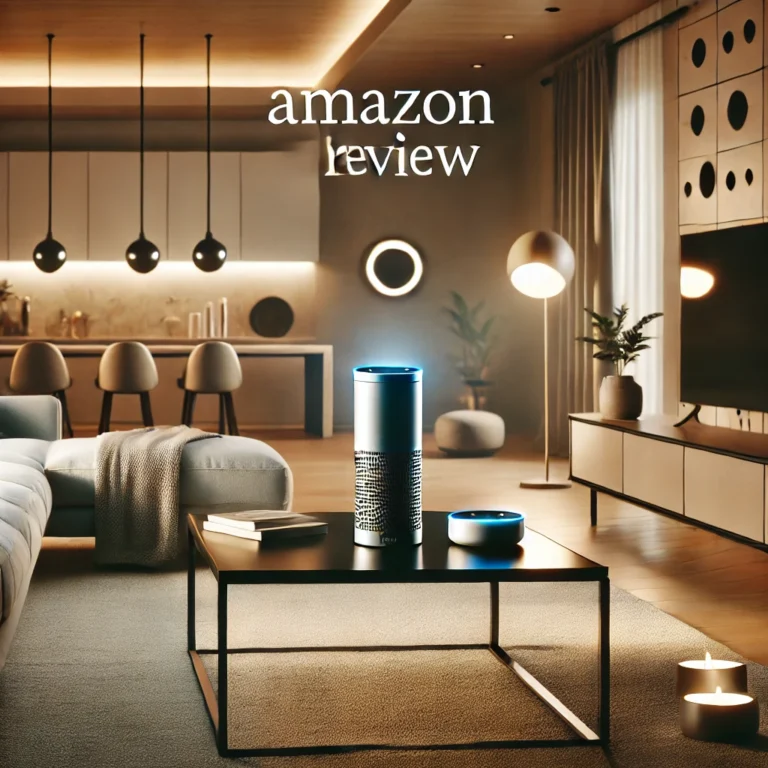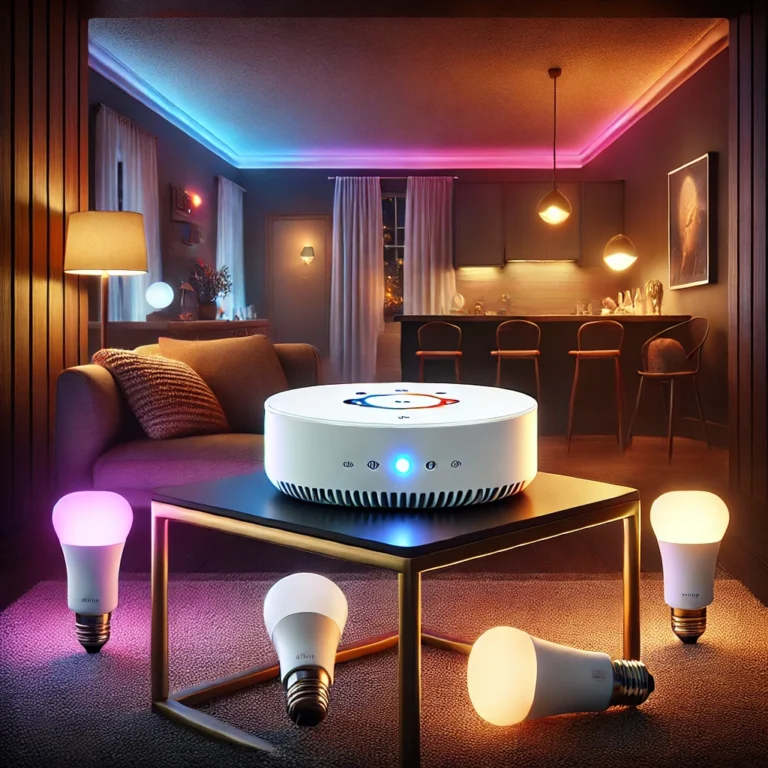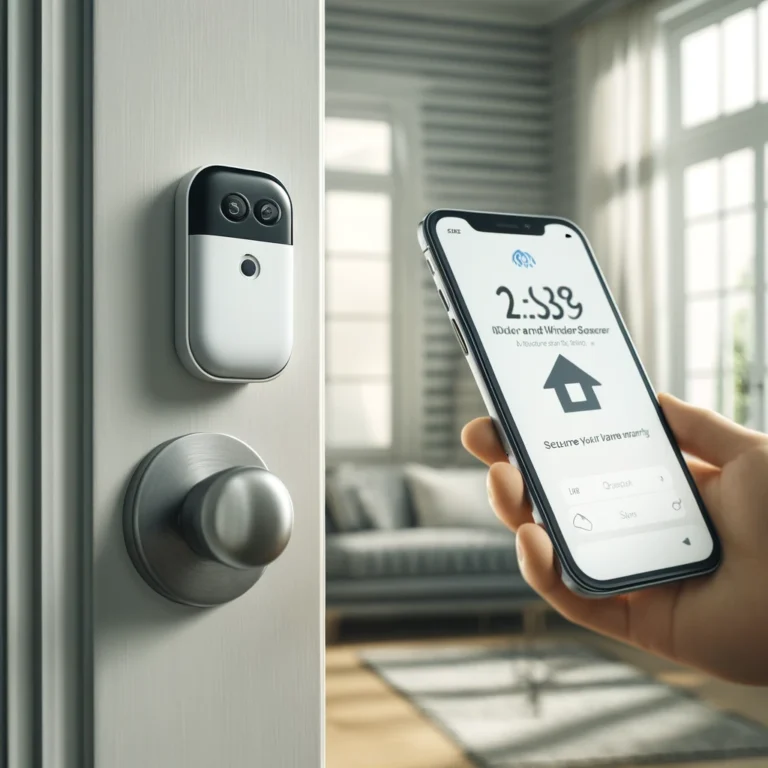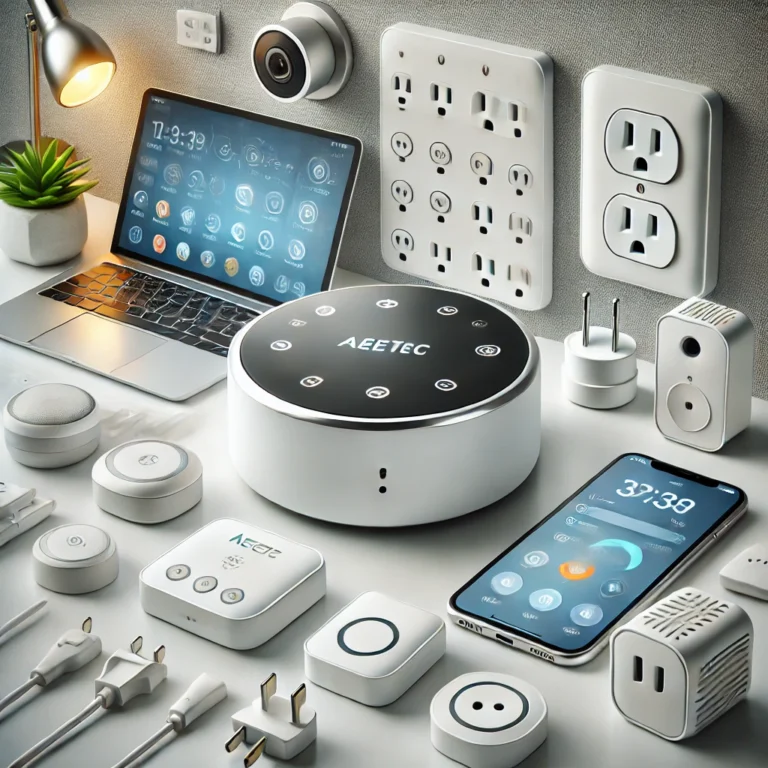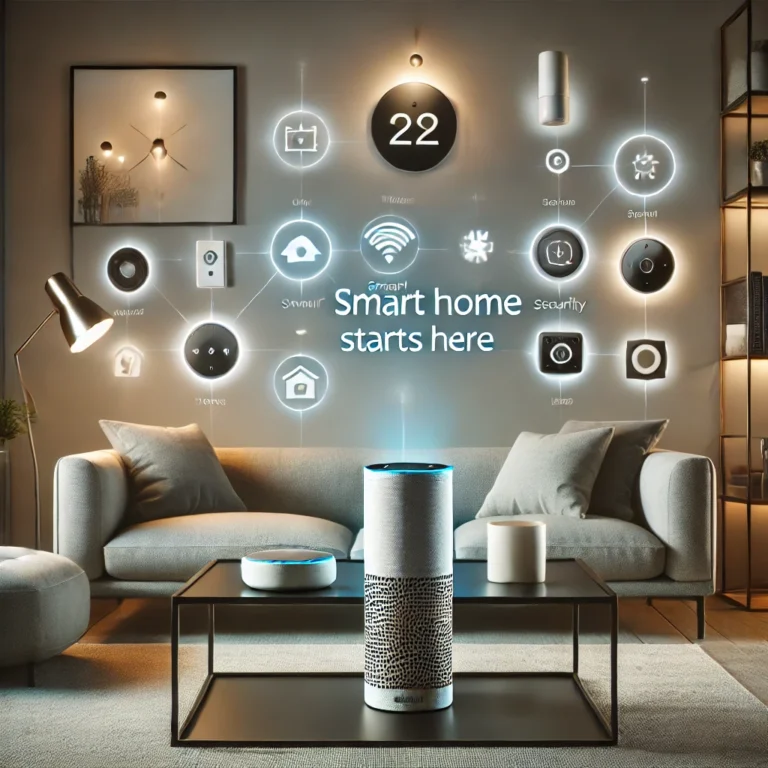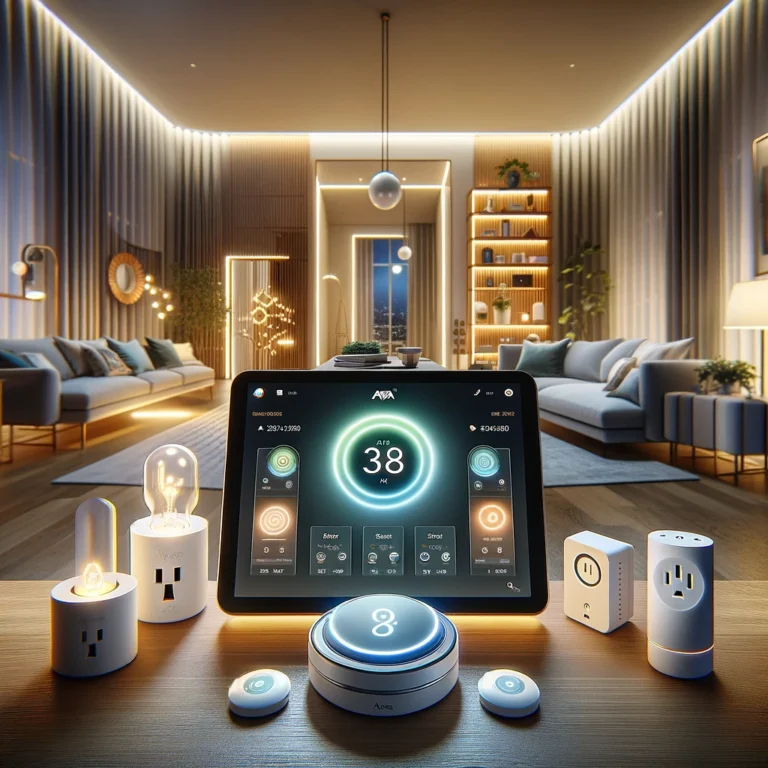How To Pick A Home Automation Hub in 2024
The world of home automation is growing rapidly, and with so many options available, choosing the right home automation hub can feel overwhelming.
A home automation hub serves as the central nervous system of your smart home, connecting various smart devices and allowing them to work together seamlessly.
In 2024, with advancements in technology and an ever-expanding ecosystem of smart devices, picking the right hub has never been more important.
In this guide, we’ll explore what a home automation hub is, what to look for when choosing one, insights from current users, and the top choices available on the market today.
We will also point you to more information for each home automation hub so you can see exactly what to expect.
Click here to check out the best home automation hubs…
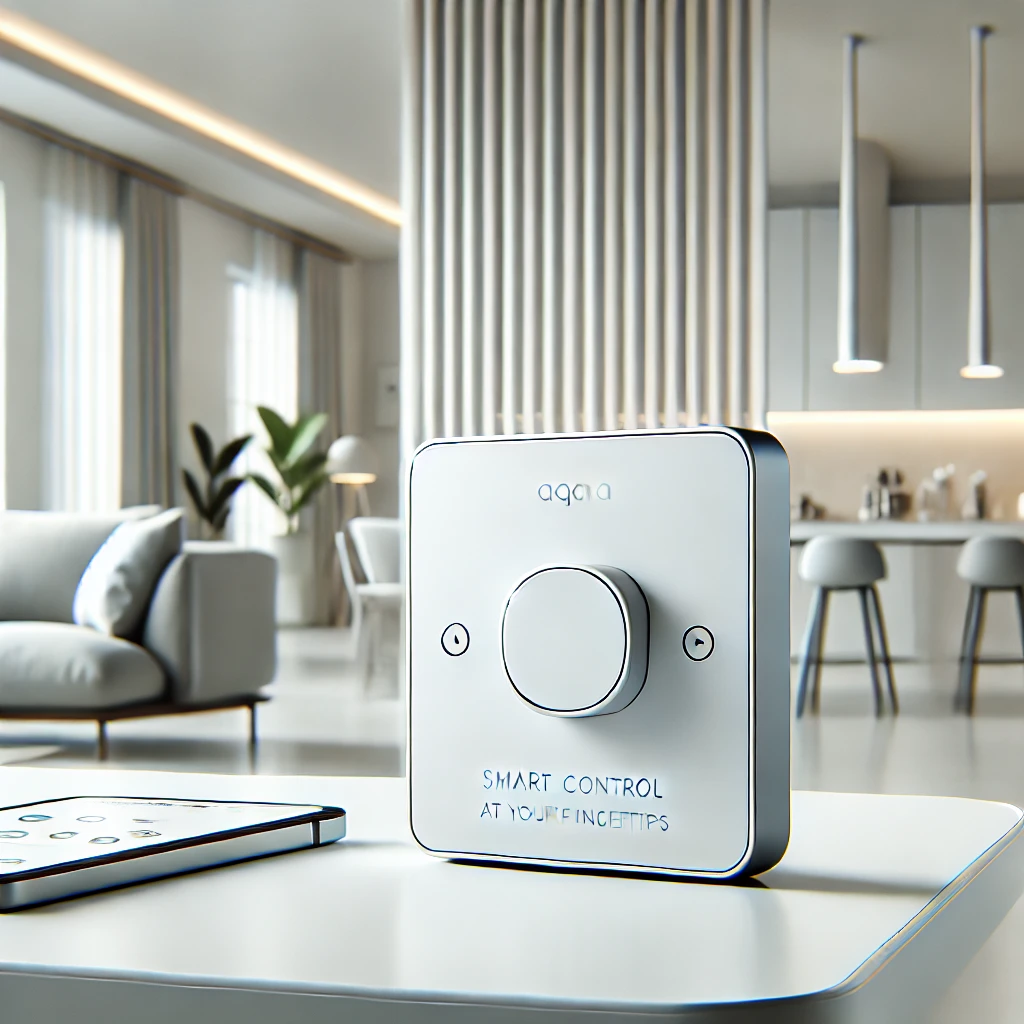
What is a Home Automation Hub?
A home automation hub is a device that allows different smart home products—like lights, locks, cameras, and thermostats—to communicate with each other. Think of it as a translator for all your smart devices. Without a hub, you might have a bunch of gadgets that can only be controlled individually.
But with a hub, you can create scenarios where these devices interact, like turning off all the lights, locking the doors, and setting the thermostat to energy-saving mode when you leave the house.
Hubs connect to devices using various communication protocols, such as Zigbee, Z-Wave, Bluetooth, and Wi-Fi. Some hubs even support multiple protocols, allowing for greater compatibility with a wider range of devices. The hub acts as a bridge, ensuring your smart home setup is not only integrated but also efficient and easy to control.
The above is important to remember as you must make sure that your home automation hub is compatible with the communication protocol that you are using for your devices.
For instance if you are looking to control cameras, light switches etc… You need to make sure that they are using the same communication protocol or that your hub is compatible.
What to Look for in a Home Automation Hub
Choosing the right home automation hub requires careful consideration of several factors. Here are the key aspects you should look for:
Compatibility:
Device Support: Ensure the hub supports the smart devices you already own or plan to purchase. Look for hubs that support multiple communication protocols (like Zigbee, Z-Wave, and Wi-Fi) to maximize compatibility.
Platform Compatibility: Check if the hub integrates well with popular smart home platforms like Google Assistant, Amazon Alexa, and Apple HomeKit. This ensures you can control your devices using your preferred voice assistant or smart home app.
Ease of Use:
User-Friendly Interface: The hub should have a straightforward setup process and an intuitive app interface. This makes managing your smart home simple, even for those who aren’t tech-savvy.
Automation Capabilities: Look for hubs that offer robust automation features, allowing you to create complex routines and scenes without needing to code.
Reliability and Performance:
Stable Connectivity: A good hub should maintain a stable connection with all your devices, reducing the chances of lag or disconnection.
Local Processing: Hubs that process commands locally (rather than in the cloud) are generally faster and more reliable, especially if your internet connection is slow or unstable.
Security and Privacy:
Data Encryption: Choose a hub that offers strong encryption to protect your data and ensure your smart devices cannot be easily hacked.
Privacy Policies: Look into the manufacturer’s privacy policy to see how your data is used and whether it is shared with third parties.
Expandability:
Scalability: If you plan to expand your smart home in the future, make sure your hub can support additional devices without compromising performance.
Firmware Updates: Hubs that receive regular firmware updates are more likely to stay secure and compatible with new devices and technologies.
What Do Home Automation Hubs Do?
Home automation hubs perform several essential functions in a smart home setup:
Device Integration: They integrate various smart devices from different manufacturers, enabling them to work together. For example, a motion sensor from one brand can trigger a light bulb from another to turn on.
Centralized Control: Hubs provide a single point of control for all your devices. This means you can manage everything from your lighting and security cameras to your smart plugs and thermostats from one app.
Automation and Scheduling: Hubs allow you to set up automated routines and schedules. For example, you can automate your lights to turn on at sunset or your thermostat to lower the temperature at bedtime.
Voice Control: Most modern hubs are compatible with voice assistants like Alexa, Google Assistant, or Siri, allowing you to control your devices hands-free.
Remote Access: With a hub, you can control your smart home from anywhere in the world using your smartphone, provided you have an internet connection.
What People Are Saying About Home Automation Hubs
As smart homes become more popular, user experiences with home automation hubs are becoming increasingly varied. Here’s a snapshot of what people are saying:
Ease of Use: Many users appreciate hubs that are easy to set up and manage, with some noting that a good user interface is crucial for a positive experience. A hub that offers a seamless, straightforward setup process is often favored by beginners and non-tech-savvy users.
Reliability Issues: Some users have reported reliability issues with certain hubs, particularly those that rely heavily on cloud services. Disconnections and lag can be frustrating, highlighting the importance of choosing a hub known for stable performance.
Compatibility Challenges: Compatibility is a common concern among users. With so many different smart home devices on the market, finding a hub that supports a broad range of products can be a challenge. Users frequently recommend checking compatibility before purchasing to avoid disappointment.
Security Concerns: Security remains a top priority for many users. Some have expressed concerns over data privacy, especially with hubs that require constant internet access and those with less transparent data policies.
Expandability and Future-Proofing: Users who are planning to expand their smart home setups in the future tend to prefer hubs that are easily expandable and receive regular updates to stay current with new devices and technologies.
Top Choices for Home Automation Hubs in 2024
Based on current market trends and user feedback, here are some of the top home automation hubs you should consider in 2024:
Samsung SmartThings Hub:
Compatibility: Supports a wide range of devices across Zigbee, Z-Wave, and Wi-Fi protocols. Compatible with Google Assistant, Alexa, and Apple HomeKit.
Features: Offers robust automation capabilities, an intuitive app interface, and reliable local processing for fast response times.
User Reviews: Praised for its wide compatibility and ease of use but criticized by some for occasional firmware issues.
You can click here to read a full review of this hub or you can click here and go straight through to Amazon.com to check this out.
Amazon Echo Hub:
Compatibility: Primarily supports Wi-Fi devices but is increasingly adding Zigbee support. Deep integration with Alexa makes it ideal for those already using Amazon’s ecosystem.
Features: Voice control with Alexa, extensive routine customization, and a user-friendly app.
User Reviews: Users love the integration with Alexa and the simplicity of setup, though some note limitations in compatibility with non-Amazon devices.
You can click here to read a full review or you can click here and go straight through to Amazon to check this hub out.
Google Nest Hub:
Compatibility: Works well with Google Assistant and a broad range of Wi-Fi devices. Limited Zigbee and Z-Wave support.
Features: Strong focus on voice control and integration with Google services, plus a sleek design that blends into most homes.
User Reviews: Highly rated for its ease of use and integration with Google products, though some users desire more protocol support for broader compatibility.
You can click here to read a full review or you can click here and go straight through to Amazon to check this hub out.
Hubitat Elevation:
Compatibility: Supports Zigbee, Z-Wave, and Wi-Fi devices, making it highly versatile. Compatible with most smart home ecosystems.
Features: Known for its local processing capabilities, offering quick response times and high reliability. Extensive automation options are available for power users.
User Reviews: Praised for its speed and reliability due to local processing, but the setup can be challenging for beginners.
You can click here to read a full review or you can click here and go straight through to Amazon to check this hub out.
Apple HomePod Mini with HomeKit:
Compatibility: Best suited for those in the Apple ecosystem. Supports a range of HomeKit-compatible devices.
Features: Voice control with Siri, seamless integration with Apple products, and strong privacy features.
User Reviews: Ideal for Apple users due to seamless integration, but the closed ecosystem can limit device choices compared to other hubs.
You can click here to read a full review or you can click here and go straight through to Amazon to check this hub out.
Conclusion
Choosing the right home automation hub in 2024 requires careful consideration of compatibility, ease of use, reliability, security, and expandability.
Whether you’re looking for something that integrates seamlessly with your existing devices, offers robust automation features, or prioritizes privacy and security, there is a hub out there for you. By understanding your needs and doing a bit of research, you can select a hub that will serve as the cornerstone of your smart home for years to come.
